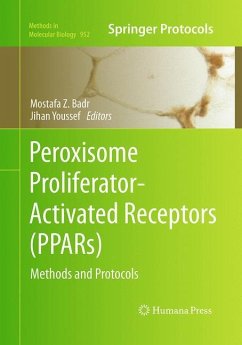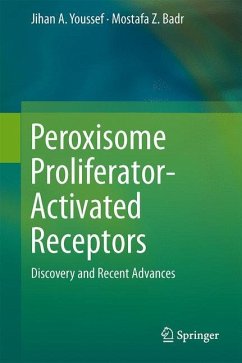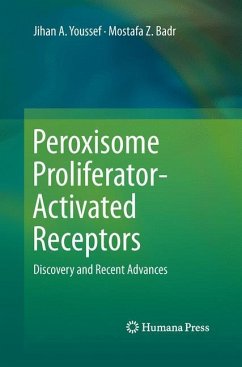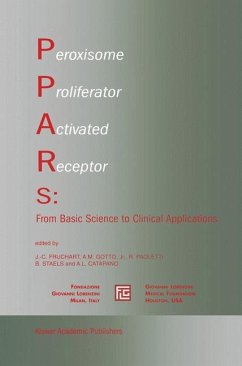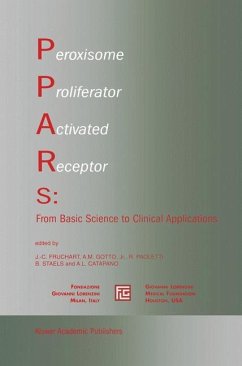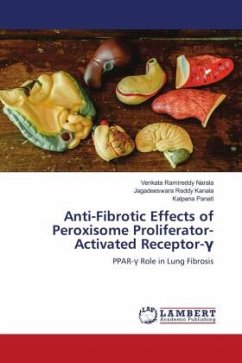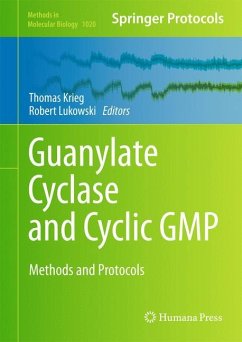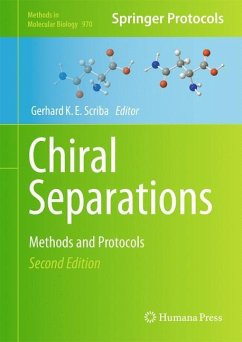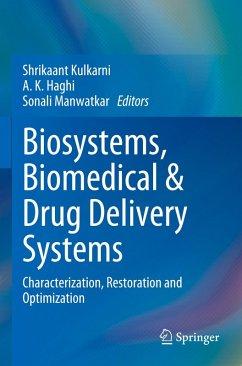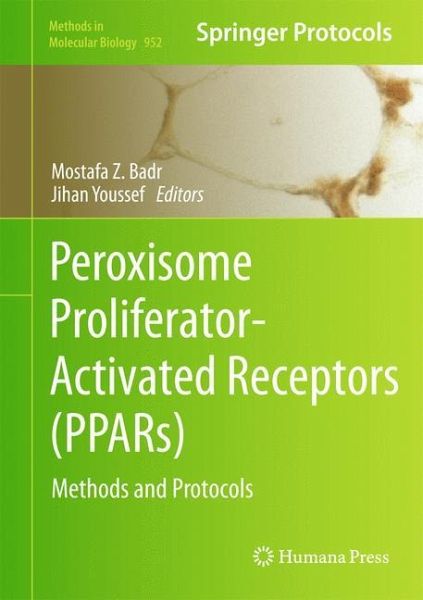
Peroxisome Proliferator-Activated Receptors (PPARs)
Methods and Protocols
Herausgegeben: Badr, Mostafa Z.; Youssef, Jihan A.

PAYBACK Punkte
57 °P sammeln!
All three peroxisome proliferator-activated receptor (PPAR) subtypes share a high degree of structural homology but differ in function, tissue distribution and ligand specificity. PPARs play critical roles as regulators of numerous physiological as well as pathophysiological pathways, and efforts are currently underway to fully characterize their functioning and to develop safer and more effective PPAR modulators to treat a myriad of diseases and conditions. In Peroxisome proliferator-Activated Receptors: Methods and Protocols, renowned experts in the PPAR arena provide detailed protocols for ...
All three peroxisome proliferator-activated receptor (PPAR) subtypes share a high degree of structural homology but differ in function, tissue distribution and ligand specificity. PPARs play critical roles as regulators of numerous physiological as well as pathophysiological pathways, and efforts are currently underway to fully characterize their functioning and to develop safer and more effective PPAR modulators to treat a myriad of diseases and conditions. In Peroxisome proliferator-Activated Receptors: Methods and Protocols, renowned experts in the PPAR arena provide detailed protocols for investigating these receptors. Chapters contain methods ranging from the cloning of receptors to their knockdown, to protocols exploring posttranslational modifications of PPARs and coactivators, as well as receptor subcellular localization. Also assembled are methods to evaluate the involvement of these receptors in behavior functions, an emerging facet in PPAR research. Written in the successful Methods in Molecular Biology(TM) series format, chapters include introductions to their respective topics, lists of the necessary materials and reagents, step-by-step, readily reproducible protocols, and notes on troubleshooting and avoiding known pitfalls.
With its well-honed methodologies, Peroxisome proliferator-Activated Receptors: Methods and Protocols, will be a useful resource for all seeking to advance their knowledge of this field.
With its well-honed methodologies, Peroxisome proliferator-Activated Receptors: Methods and Protocols, will be a useful resource for all seeking to advance their knowledge of this field.





